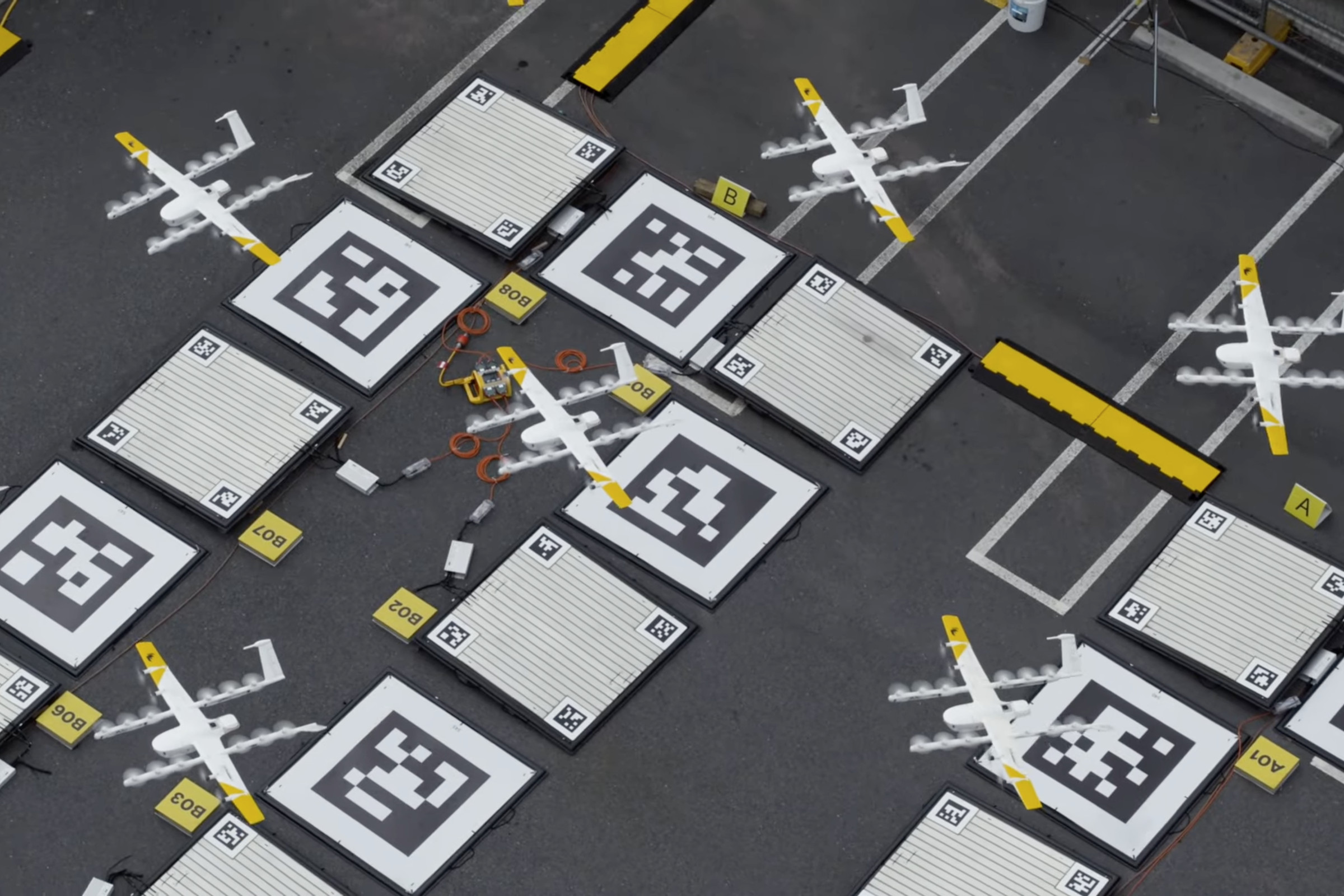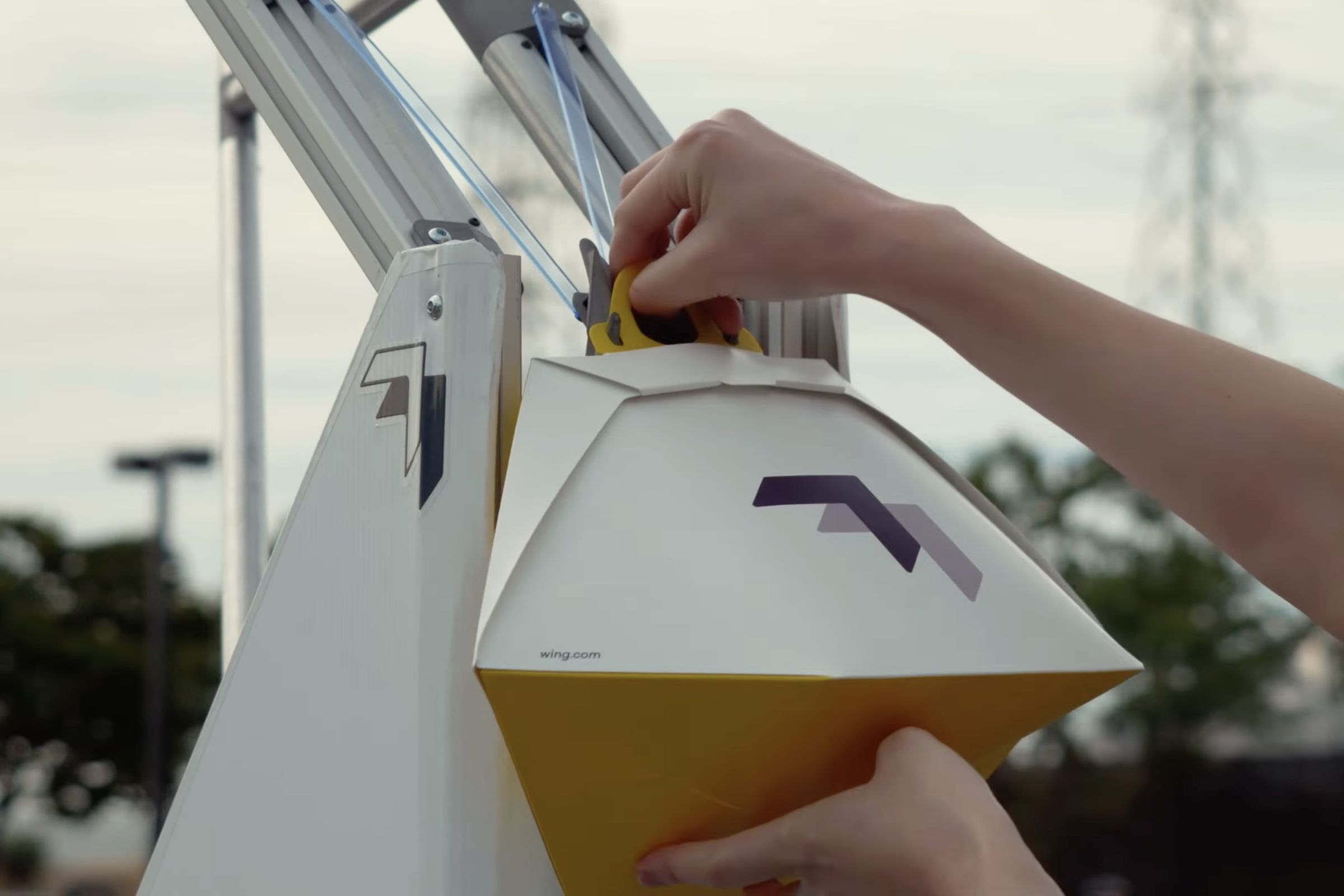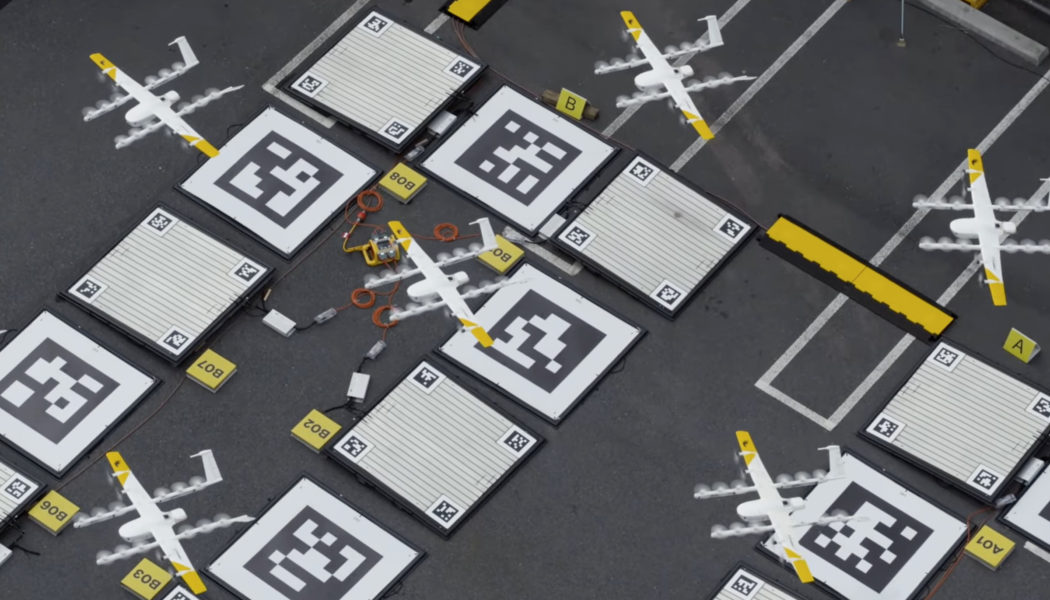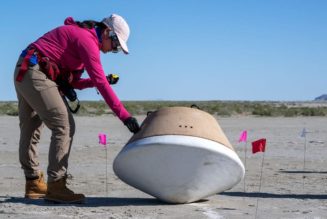Wing’s new Wing Delivery Network lets its drones autonomously pickup and deliver packages back-to-back without needing to immediately return to a point of origin.

Wing, the drone delivery company owned by Google parent company Alphabet, is unveiling a new system that enables its drones to dynamically take pickup and delivery jobs back-to-back without needing to report back to an originating base. The ability is part of the company’s new Wing Delivery Network, a decentralized logistics system that can automatically delegate tasks to a fleet of drones throughout a metro area.
Wing Delivery Network consists of the drones themselves, pads where drones can take off an land as needed for charging, and Autoloader stations. Autoloaders are installed at retailers’ parking lots, and employees can load a prepared order when ready. Then, an available drone can come and lower a rope to grab it without anyone waiting around.
Wing’s CEO Adam Woodworth explains in a company blog post that Wing’s vision is to deliver packages using a safe and efficient automated logistics system that “moves packages by the millions.” He believes that the industry is fixated on drone hardware and not focusing on finding ways to best “harness an entire fleet for efficient delivery.” According to Woodworth, Wing is looking at delivery as “an efficient data network” instead of a transportation system.
In a new video, Woodworth says that Wing Delivery Network is “analogous to how ridesharing works, where you’re ordering a ride from the nearest resource rather than waiting for a specific resource to come.” He also notes that many retailers already have curbside pickup infrastructure ready, and that Autoloaders can be placed in those same spaces.


A single metro area can have several nodes, or places drones can land to charge up and then take off towards the next pickup point. It’s faster and makes more sense for smaller payloads that would otherwise be delivered using ground vehicles, often larger ones that aren’t environmentally friendly. The company’s current drones can only carry about three-pound payloads, but it’s working on building larger drones too.
Wing recently opened command centers that let personnel monitor the automated drones on a map. The company currently operates deliveries in Texas, Virginia, and Australia and delivers for companies like Walgreens and Doordash.
Currently, Wing has moved about 1,000 packages a day in an operating region of more than 100,000 people. Wing plans to roll out parts of the new Delivery Network over the next 12 months, and says it’ll handle “tens of millions of deliveries” for millions of people for cheaper than ground deliveries by mid-2024.









